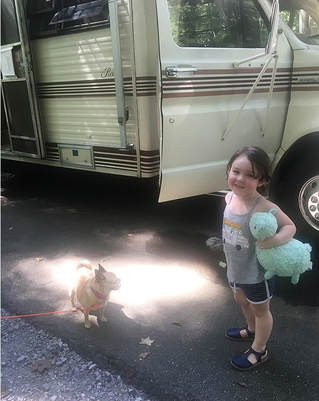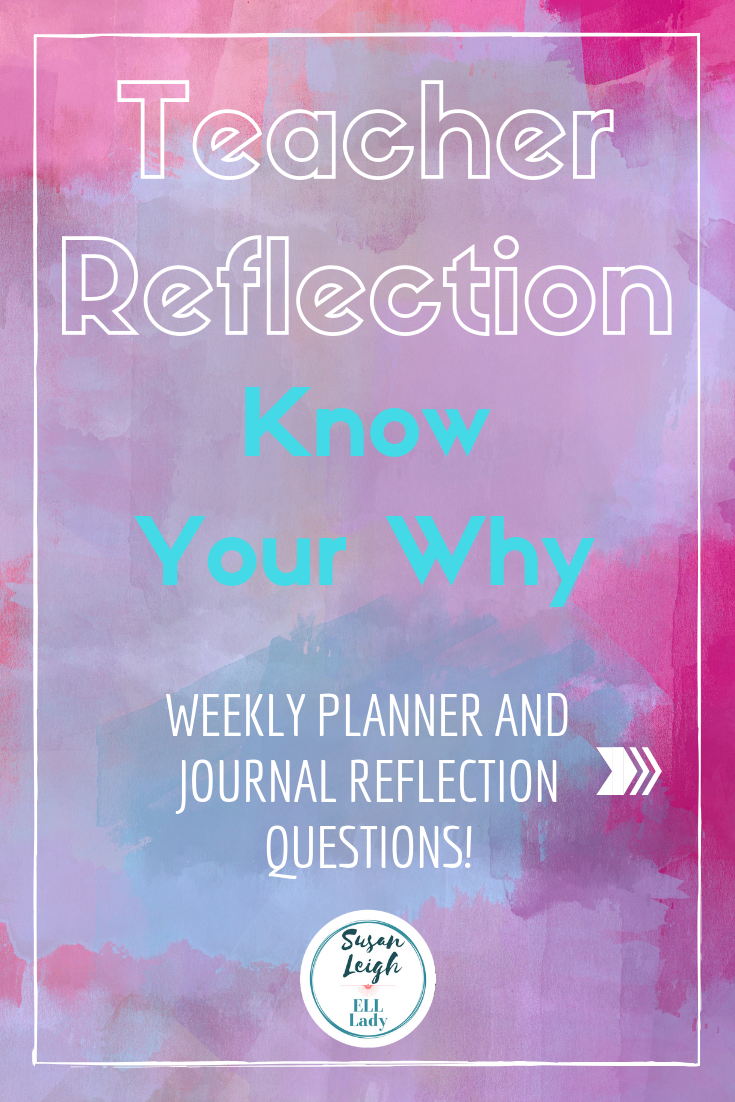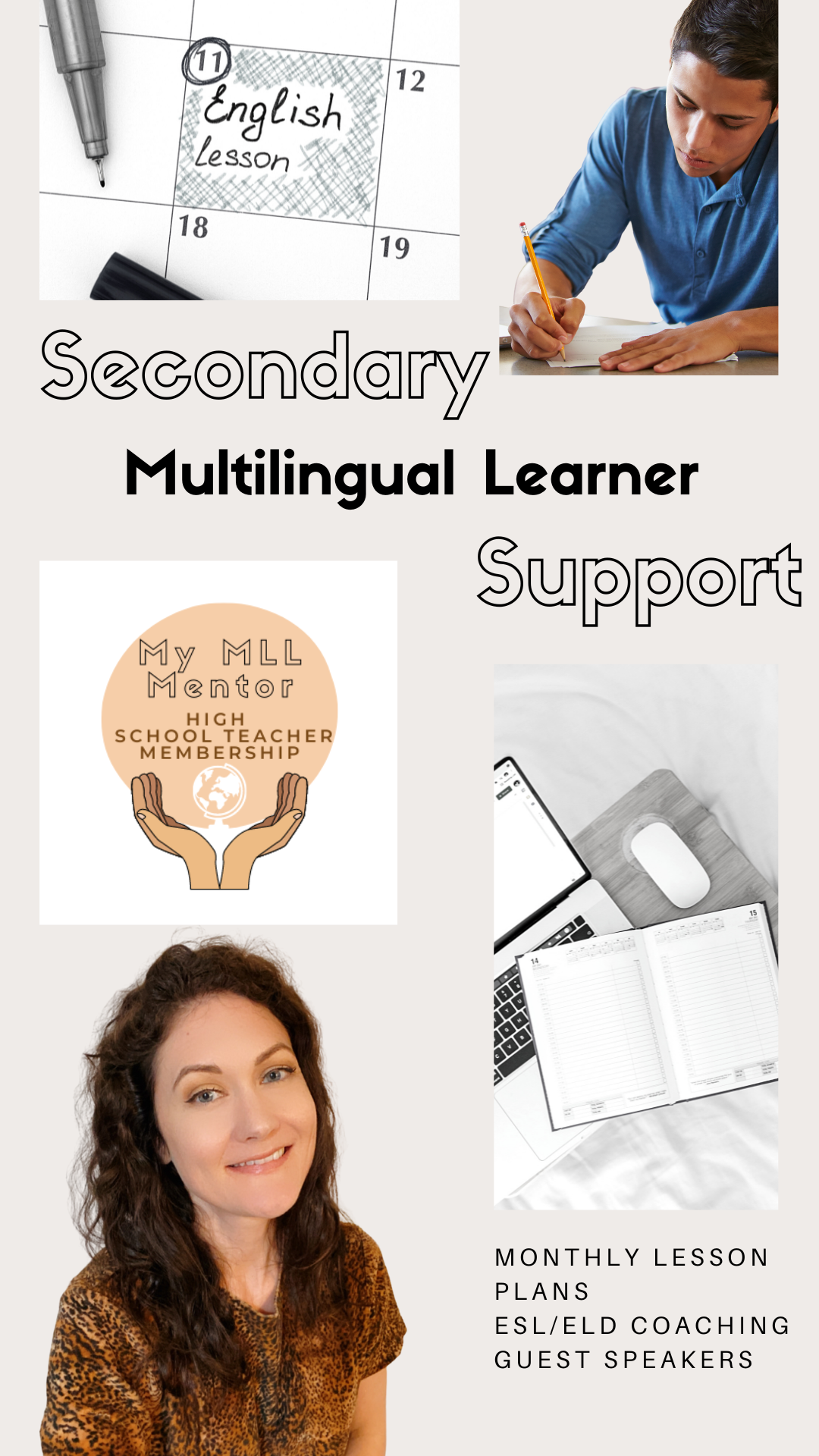 When we still had hope for the weekend. When we still had hope for the weekend. Ah, Labor Day. A day that we are definitely not supposed to labor, but are we allowed to think about our labor? This weekend so far was a total bust. It was so busted that I felt the need to write about it, and it got me thinking about when things go awry not only in life, but the classroom. What do we naturally do when that happens? We think on it, stew on it, analyze it, agonize over it...depending on what happened and the severity of the situation. Which is not a bad thing to do so that we can fix it for next time, as long as we don't stew too much and use it to be productive. Let's get back to this weekend. So my husband bought a camper a few months ago. I'm going to be honest and say I wasn't thrilled since: a. he didn't really ask me b. it cost money that I would've rather spent on new kitchen countertops and floors and c. it was a 1988 Shasta. Never mind that my friend said it looked like it came from the series "Breaking Bad". He fixed that thing up, bought new curtains, painted the ugly wallpaper, and bought all the camper necessities we would need. This weekend was the big reveal and my daughter and the dogs were more than thrilled to take the "big truck" out somewhere. Thank god it was only 45 minutes away because what happened? We got stranded. After spending Saturday morning packing clothes and food and doggie supplies, we finally hit the road at about noon. We were starving and realized we couldn't really drive through Chick-fil-A in that thing, so en route we realized there was no AC. It was 92 degrees. We stopped at a car shop and they filled the coolant and we were off, after $235. We pull up to the site and see a fire truck and multiple park rangers. A very nice older ranger motions for us to roll our window down. It's the power. It's out in the whole campground due to a blown fuse, but will be back on at 4:30. No AC again. Super duper. We roll into our spot, unload, get comfortable, and see our friends down the way. We break out the salsa, the kids play, make dinner and it's 5:30. According to the rangers, the power is not coming back on for the whole weekend. We all start to pack up and head home reluctantly annnnnnnnd...take a guess. Yep, the old Shasta decides not to start. Luckily, our friends have room for us and our dogs in their Pilot. So all of this got me thinking...instead of fuming about why in the hell did my husband buy this thing, how can I channel these feelings to reflect instead of agonize over it? What are ways I can do this in my teaching? 1. Know Your Why Frederick Nietzsche once said, "He who has a why can endure any how". "How am I not going to kill my husband for this?" was my question this weekend. But looking further into my "why" shows me that I love my husband, so I'll get over the how. Your purpose includes your passion, which in this case is my family. Looking at your why will help you do your how. Our principal started off the year exploring this idea, and it's helped me immensely already. Reflecting on my lessons and seeing things that didn't work with my beginner ELs is frustrating, but stepping back and remembering why I'm doing this helps. Get back to identify your basics and let it inspire you. 2. Get a Good Planner and Journal (or find a good one to print) As teachers, we are always looking for a deal. Usually in the Target dollar section. But it's like finding gold when we find free stuff. After some googling and Pinteresting, I've found some good planners and journal pages for reflection. Or even better- make your own on Canva! After you've found some you like, print them out and put them in one of your binders you have laying around your classroom. Here's my Canva masterpiece. 3. Questions for Reflection You can make your own, or use already made resources like mine or Cult of Pedagogy's (I love her blog. Check it out if you haven't.) Here are some of mine below to get you started:
Here is where your planner comes in. After reflecting and while it's fresh in your mind, turn to your planner and decide what you would like to do tomorrow (if you haven't decided yet), or what would you like to tweak for your already made plans. Finally, don't forget to reflect often! Return to reflections daily, weekly, and/or monthly. Return to your "why". You will grow as a teacher in ways you didn't think you could. To learn more about strategies for incorporating language into your lessons, check out my course, My EL Mentor: Creating a Language-Rich Classroom! And if you are a high school teacher, consider joining my membership, My MLL Mentor, to discuss ideas like this with other high school ESL teachers!
0 Comments
Leave a Reply. |
AuthorI support middle and high school teachers through monthly lesson plans, coaching, and guest speaker offerings in our Secondary ESL Teacher Membership. Archives
April 2023
Categories
All
|
||||||


 RSS Feed
RSS Feed
